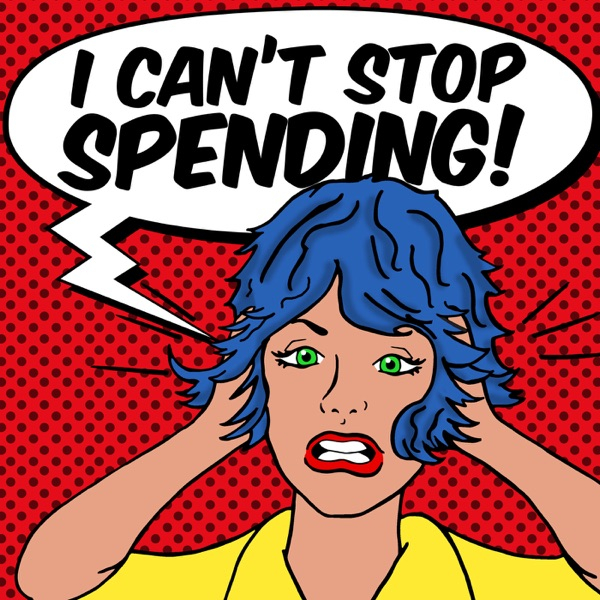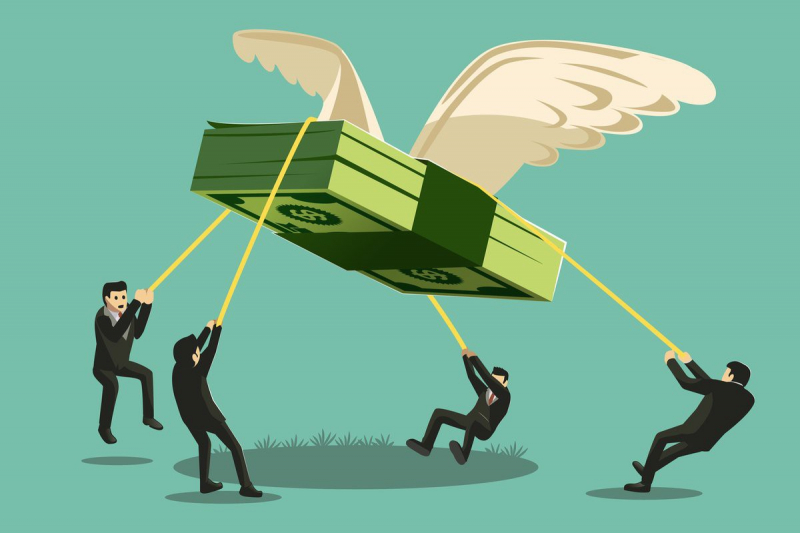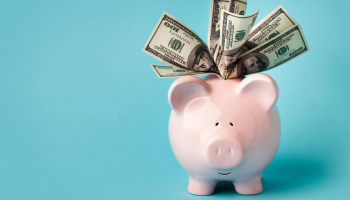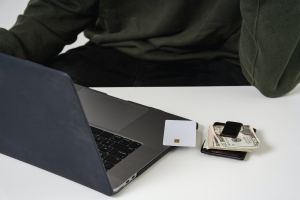Top 7 Money Personality Types
When it comes to financial health, we frequently focus on how money works and the resources available to make sound financial decisions. However, one critical ... read more...factor that many people overlook or are unaware of is their money personality type. Money personality refers to an individual's approach to and emotional responses to money, which have been shaped by life experiences or passed down from previous generations. There are seven money personality types, according to financial psychology expert Ken Honda. Knowing and understanding your personality type(s) will help you recognize and make better financial decisions. This can also lead to a better relationship with money, such as fewer impulse purchases, better budgeting, and wiser investment decisions. Read on the check out what is your money personality type?
-
Signs you might be a Compulsive Saver:
- You have a habit of saving all of your earnings indefinitely, sometimes with no end goal in mind.
- You believe that the best way to feel secure in life is to save money.
- You live a very frugal lifestyle and want to spend your money only on the necessities, which can be the result of growing up in poverty.
- You are a deal hunter or a bargain hunter. You know like the back of your hand where to get the best deals on food, clothes, and plane tickets. Friends will frequently seek your advice on which phone company is the most affordable or which point cards are worthwhile.
Pitfalls:
Some compulsive savers are so afraid of losing money that they live their entire lives without spending any of the money they have worked so hard to accumulate. For example, you may reduce your spending on hobbies or activities that could bring you happiness and purpose. You are more likely to experience stress as a result of your constant fear of losing money and a lack of dopamine-producing activities.
Money advice:
It's all about moderation; try to strike a balance between saving money and having fun. Investing is a great way to make money with your savings. Consider where you want to be in the future and how you can use your savings to get there. However, remember to set aside some money each month for your hobbies or recreational activities.

MainStreet Financial Planning 
Daily Record -
Signs you might be a Compulsive Spender:
- When you are stressed, you have a tendency to overspend. As a result, you make unnecessary purchases only to regret them later.
- You frequently spend without planning ahead of time.
- You have an outgoing personality and enjoy treating people to something special for no apparent reason.
- When you're in emotional pain, your only option is to spend, especially if you want instant gratification.
- Spending money is regarded as a form of self-expression. You enjoy purchasing luxury brands, purchasing the latest and greatest smartphone even if your old one is still in good working order, or treating your friends to something special for no apparent reason.
Pitfalls:
Dopamine, also known as the "happy hormone," is produced in high amounts by compulsive spenders. Even when you are in debt, you frequently have a tendency to overspend, which raises your risk of declaring bankruptcy or accruing credit card debt. They might even try to keep expensive purchases from their loved ones and friends. Additionally, you find it difficult to resist the urge to indulge when you are under the influence of emotion or during a sale.
Money advice:
Create a monthly budget to develop sound money management. You should choose to pay with cash rather than a credit card if you want to increase your level of financial consciousness, which involves being aware of how much you spend and where your money is going. Remind yourself that investing in a new car (when you already own one) entails forgoing funds for important goals like debt repayment or retirement savings. In addition, you should avoid engaging in uncontrollable spending by finding other ways to relieve a bad mood rather than turning to retail therapy.

GoodTherapy 
Podtail -
Signs you might be a Compulsive Moneymaker:
- You are convinced that making more money will provide you with a better life.
- You devote the majority of your energy to earning as much money as possible, leaving you with little to no time to rest and relax.
- You enjoy receiving approval and recognition for your financial achievements from others.
Pitfalls:
- While Compulsive Moneymakers are typically well on their way to financial independence, they run the risk of slipping into dangerous territory if they start to put important relationships last in order to increase their wealth (e.g., choosing to work on weekends over spending time with loved ones).
- You'll have a better chance of achieving financial independence if you earn more money. The trade-off might be that you won't get any me time. As a result, over time, your physical and mental health will be compromised.
Money advice:
Recognize that money is not everything in life. You should enrich your life by dedicating time to yourself and your loved ones. You can also donate money to charity, which can help you feel financially strong while also helping the less fortunate. And if you do have a significant amount of wealth, give it meaning by helping others, whether that means donating to a worthy cause or treating yourself to that long-awaited family vacation.

Parents 
WeMoney -
Signs you might be an Indifferent-to-Money:
- You don't often consider money and don't give much thought to it. You become less likely to plan your budget as a result.
- You think that important life decisions shouldn't be influenced by money.
- You have a prosperous upbringing and don't stress much about money.
Pitfalls:
Many people who are unconcerned about money believe that they only need a small amount of money to be happy, which is a healthy mindset. However, if you are financially irresponsible, it can backfire on you (for example, you live off your spouse or parents instead of earning a living.)
Money advice:
Even if you have a stable financial situation, you should develop the habit of managing your money. It is critical to understand your monthly budget, expenses, and debts (if any). Doing all of these things can save you a lot of money in the long run. Also, remember to set aside money for emergencies.

CNBC 
Liputan6.com -
Signs you might be a Saver-Splurger:
- You have characteristics in common with savers and spenders.
- You can put a lot of money in savings, but then give in to irrational spending urges.
- When you do spend from your savings, you might buy items that you don't need or won't use frequently.
Pitfalls:
When the pendulum swings from compulsive saving to compulsive splurging, it can be emotionally draining. You are frequently stressed and disappointed in yourself because you worked so hard to save money only to lose it so quickly.
Money advice:
- When choosing to splurge, Saver-Splurgers rarely give their purchases much thought, similar to Compulsive Spenders. Before making a major purchase, consider how you might feel in a week or two. Maintain focus on your financial objectives.
- Researching the item you want to buy can help you avoid making impulsive purchases. Avoid browsing shopping apps when you're worn out as your brain will be less able to resist the urge to buy, especially if there are tempting sales and discounts. You can avoid making impulsive purchases during a sale by following the 72-hour rule.

GOBankingRates 
Tín dụng -
Signs you might be a Gambler:
- You share characteristics with both Moneymakers and Spenders.
- You can make a lot of money and make risky financial decisions. You are more likely to invest in large, high-risk projects, for example. The thrill of risk and the promise of reward is a pleasure in and of itself that you can easily become engrossed in.
- Sometimes you gamble away your money to get rid of boredom.
Pitfalls:
- Risk-takers frequently experience financial losses and subscribe to the motto "go big or go home." If, however, you allow the wager to go awry or use your retirement savings or contingency funds to make up your losses, you run a higher risk of losing everything you have.
- Gamblers frequently experience unexpected gains or devastating losses. The risk that stands out the most is when compulsive gamblers borrow against assets like their retirement savings or kids' college funds to cover shortfalls along the way.
Money advice:
- The goal is to be self-aware and conscientious about the financial risks you take. Balance and security are essential, so begin saving on a monthly basis before making any major financial decisions.
- Nothing ventured, nothing gained. However, you must set aside a contingency fund in case your investments fail. Also, before investing in a project, you should thoroughly research it and consult with a financial expert.

Online Gambling Sites 
eBusinessTalks -
Signs you might be a Worrier:
- No matter how much money you have, you constantly worry about running out of it. This could be because of significant financial losses you've experienced or a previous bankruptcy in your family.
- You don't have faith in your capacity to achieve financial independence.
- You always prepare for the worst-case scenario, which is that you are completely broke.
Pitfalls:
Making plans for the worst-case scenario is a good idea. Knowing what might occur if you don't plan for the future is a wise move. But it's never a good idea to let anxiety and worry sap your joy in the here and now. However, as a worrier, you frequently avoid low-risk investments out of fear of losing money and missing out on lucrative opportunities in the process. Additionally, your big financial decisions may be adversely impacted by your fear of losing money.
Money advice:
Seek out positivity when discussing money. Work on identifying the source of your financial concerns. You should talk to a financial therapist about your fear so that you can figure out what's causing it and how to overcome it. Furthermore, seeking the advice of a financial expert on safe and effective investments is a good idea.

Times of India 
The Minimalists

























